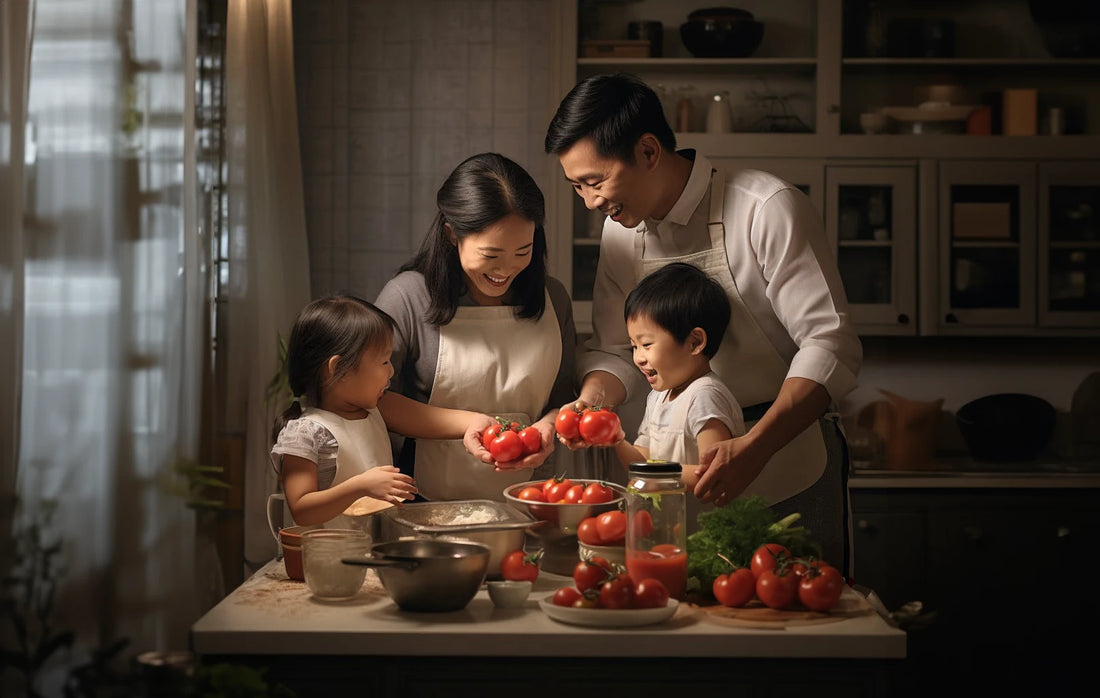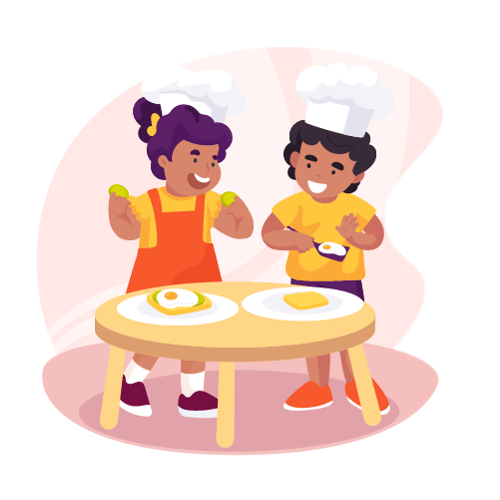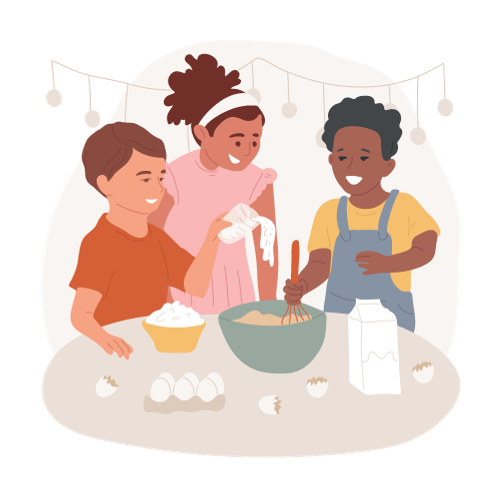Do you remember the first time you helped your parents or grandparents in the kitchen? The sensation of holding a wooden spoon, the smell of freshly baked cookies, and the joy of creating something delicious from scratch? Those early experiences often leave an indelible mark on our lives.
In today's fast-paced world, where convenience often trumps tradition, it's more important than ever to instill a love for cooking and baking in children from a young age. Not only does it lay the groundwork for essential life skills, but it also fosters creativity and confidence. So, if you're wondering how to ignite that culinary spark in your little ones, read on as we explore fun and effective ways to get children involved in baking and cooking.
Involve kids in the kitchen
To encourage children to participate in the kitchen, it's essential to create a positive and welcoming environment. This can be achieved by involving them in the meal planning process, allowing them to choose recipes or ingredients they are interested in trying. When they feel like their opinions are valued, they become more invested in the process and more likely to enjoy the experience.
Teach children kitchen safety
Teaching children kitchen safety is crucial for their well-being and independence. Start by introducing basic rules such as keeping knives out of reach, using oven mitts when handling hot surfaces, and never leaving the stove unattended. One effective way to reinforce kitchen safety is by explaining the potential risks associated with certain appliances or utensils. Take the time to demonstrate how to use kitchen tools properly and emphasise the importance of staying focused while cooking. Include hygiene rules as well, such as the importance of handwashing before and after handling food.
Start with small tasks
An effective way to engage children is by providing them with age-appropriate tasks that cater to their abilities. For younger children, simple tasks such as mixing ingredients or placing cookie dough on a baking sheet can make them feel helpful and involved. As they grow older, gradually introduce more complex skills such as measuring ingredients, using kitchen tools under supervision, and eventually following recipes independently. This gradual progression allows them to build confidence while developing valuable culinary skills. Read more on age-approriate tasks for children in the kitchen.
Incorporate lessons or stories
Making the experience interactive by incorporating educational elements can further pique their interest. For example, discussing where certain ingredients come from or teaching about measurements through baking can make the activity both fun and informative. For younger children, incorporating storytelling or creating themed cooking sessions based on their favorite books or movies can add an element of creativity while making learning enjoyable.
Encourage independence and responsibility
Encouraging independence and responsibility in the kitchen for children can be a rewarding and educational experience for both parents and kids. One way to do this is by giving kids their own designated space or tools in the kitchen, such as a low shelf with child-friendly utensils or a step stool so they can reach the counter. This helps them feel empowered and fosters a sense of ownership over their tasks, instilling a sense of responsibility.
Build their confidence
Furthermore, it's important to guide children through each task rather than simply completing it for them. By doing so, kids can develop confidence in their abilities and learn from any mistakes along the way. Additionally, providing positive reinforcement when they successfully complete a task will further encourage their independence and boost their self-esteem.
Enrol them in a baking or cooking class for children
Enrolling children in a baking or cooking class for kids offers numerous benefits that teaching them at home might not provide. With a structured and organised learning environment, children can develop proper techniques, learn new recipes, and gain valuable kitchen skills in a supportive setting that encourages creativity and exploration. Additionally, being part of a group class provides opportunities for social interaction and teamwork, making the learning experience more enjoyable and rewarding.
Getting your child more involved in baking and cooking can be a rewarding and educational experience for both of you. By introducing them to the kitchen at a young age, you are setting them up for a lifetime of culinary skills and healthy habits. Encouraging their creativity and independence in the kitchen will boost their confidence and help them develop important life skills. With patience, guidance, and enthusiasm, you can create lasting memories while bonding over delicious meals. So why wait? Start involving your child in the kitchen today and watch as they blossom into confident, capable cooks.
Ready to get your child started in the kitchen? Check out our baking classes for kids and cooking classes for kids. Our engaging programs are designed specifically for children between the ages of 5 and 12, providing a safe and supportive environment for them to explore culinary creativity. Join us as we inspire the next generation of master chefs!



